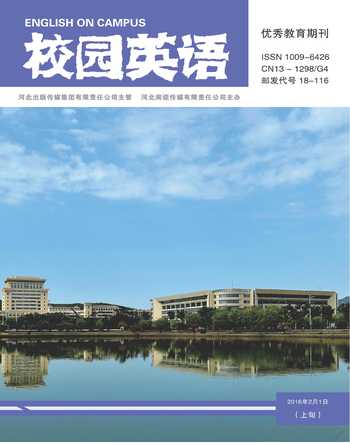Leadership Change: a Perspective from China
【Abstract】Leadership is not only about knowledge or skills, but also about emotional intelligence and ethical factors. It varies due to different cultures and development degree. Chinese traditional leadership emphasizes collectivism, leading to an ethic-oriented style of leadership, which is important in modern China. Studying comparison and contrast between traditional leadership and modern leadership (which will inevitably involve western leadership) in China will show us how to learn from the past and the west.
【Key words】leadership; china; traditional; modern; western
Traditional leadership in China can be mainly divided into two ways: with and without severe laws. Lao Tzu opposed government intervening and advocated nature taking its course. First, it follows principles of nature; second, it eliminates artificial control of the society; third, it utilizes gentlest ways that is too imperceptible to notice.This theory is both ethical and practical and influenced Confucianism and Legalists.
Confucianism maintained that a leader must set a model for others to follow. They believed that if the leader was righteous, his followers would do right things even without any command. Therefore, a leader must be equipped with good self-awareness, self-regulation and motivation.
Confucianism required leaders to be absolutely divine while Legalists provided a more practical way to lead and control. They thought ruling by law requires less from rulers so that anyone can do it. Thus, leaders made laws, and people followed them completely. Meanwhile, Legalists adopted various imperceptible tactics to manipulate people.
Chinese traditional leadership was a mixture of these theories. Under laws made by rulers, morality was highly required while tactics was universally applied. It adapted well to the small-peasant economy when peasants didnt communicate much. It also made Chinese people more introspective and introverted.However, with time going by, it became a limitation for peoples thought and the economy to develop. After a series of historical events in China in 18 and 19 centuries, Chinese people began to think about the traditional ways critically and changed a lot. Meanwhile, many western leadership theories have been introduced to China since the Reform and Opening-up.
In the political field, leaders absorb useful elements from traditional leadership conservatively and also develop some characteristic ways according to Chinese reality. First, we have a collective goal, Chinese Dream, under which people are united together. Leaders also underline some core values for people to hold in the way to realize our dreams. This represents the leaders decision-making and influencing ability.Whats more, people are led by the Chinese Communist Party(CCP)while the CCP plays a role of servant. People determine where they head and how they achieve their goals. In other words, people are virtually both led and leading.
In the economic field, efficiency and interest being the main goals, companies are cultivating a more competitive and efficient leadership, in which ability and criteria are emphasized. Morality is still important, but intelligence is much more important than in the past.Leaders need to get along well with others and the environment, because their power is no longer based on brutal force but on their appeal and charm. Also, power tactics is over-shined by criteria that leaders need set under principles of science and laws, because people tend to deal with problems directly with standard ways. Actually, those who use power tactics tend to make simple things complicated. Generally speaking, Western cultures, better at logic, science and realization of individual values, produce a more efficient style of leadership and Chinese companies are adopting this goal-oriented, skillful and requiring way.
Comparing and contrasting these different leaderships can provide us with a comprehensive perspective of developing our modern leadership theories and practice. Learning from the past will unite people together, while not rigidly adhering to it gives us chance to prompt it and activate its potential development.
References:
[1]Many terms about EQ in this article can be found in What Makes a Leader?(1998)by Daniel Goleman.
[2]New Leadership(2010)by Zhang Kuizhen and Liu Yanli.
[3]Leadership in the Perspective of Chinese Traditional Culture(2011)by Ren Duolun.
[4]The Leadership thought and style of Xi Jinping(2014)by Liu Feng and Liu Zhiwei.
作者简介:王溪(1994.08-)女,山东菏泽人,本科。

